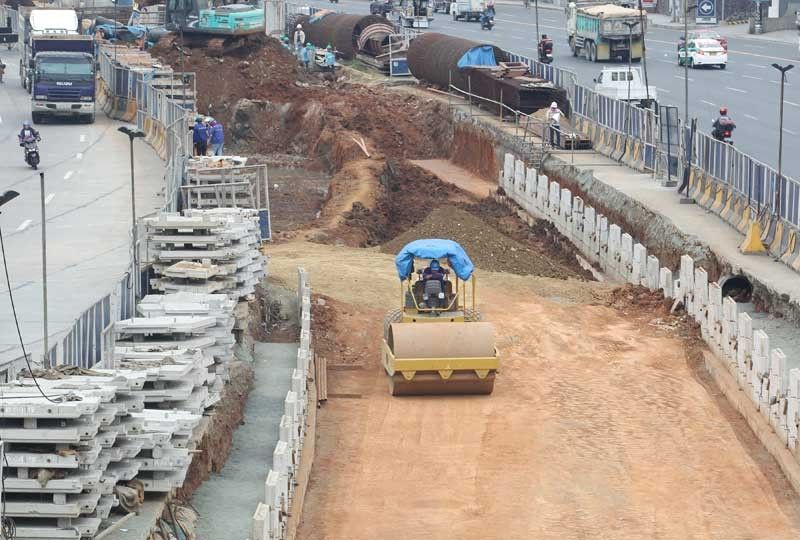Duterte: ‘Labor shortage may compromise infrastructure program’

MANILA, Philippines — The lack of skilled Filipino workers has caused delay in the realization of the touted Build, Build, Build program of the administration, with even President Duterte acknowledging the problem.
Duterte said there are available jobs in the Philippines under his term, but there is a lack of qualified workers to fill the requirements of companies involved in the government’s infrastructure projects.
“Alam mo, dito sa Pilipinas ngayon, maraming trabaho. Sa Davao ganon rin. Ang construction humihinto kasi walang trabahante. O sinong trabahante ‘yan? (There are many jobs available in the country and in Davao. But the construction work is halted because there are no workers. And these are) master electrician, master carpenter, master plumber,” he said during his speech at the proclamation rally of the five PDP-Laban senatorial candidates and guest bets before the weekend.
He added that those skills could not be given to just anyone because these are something that has to be learned.
Duterte lamented that many skilled workers have opted to find greener pastures abroad such as the Middle East. He cited that even businessman Manny Pangilinan has been encouraging Filipino workers to return home.
It was at this point that the Chief Executive revealed that the labor gap has made problematic the Build, Build, Build program.
He urged Filipinos to take advantage of the scholarships offered by the Technical Education and Skills Development Authority to adapt to new skills.
But Rep. Gary Alejano of the Magdalo party-list claimed that the country has enough skilled workers for the government’s infrastructure program.
“Duterte is trying to justify the increasing number of Chinese workers here. The administration prefers to import Chinese laborers because his Build, Build, Build program relies heavily on loans from China,” he said.
He urged the President “to be fully transparent and disclose the conditions for all projects funded by China” and to reveal what skilled labor the infrastructure program needs so overseas Filipino workers would know what jobs await them in case they decide to return home.
Rep. Ariel Casilao of Anakpawis said Duterte’s claim is unbelievable “especially when there are more than 2.3 million unemployed Filipinos, including 1.7 million aged 15 years to 34 years.”
He said the administration chooses to rely on imported labor instead of employing Filipinos.
The Trade Union Congress of the Philippines (TUCP) saw it from a different view as it yesterday blamed “low pay, poor benefits, and unhealthy working conditions” for the shortage of construction workers in the country.
In a statement, TUCP president Raymond Mendoza said construction workers in the country are “treated poorly,” prompting many of them to seek better opportunities abroad.
“We are currently experiencing ‘skill and brain drain’ phenomenon because of this bad treatment of our construction workers,” he noted.
Mendoza cautioned that the country “is losing fast its vast and excellent reserves of construction manpower to higher pay and attractive benefits offered by companies abroad.”
Citing different government statistics, the TUCP estimates that there are three million construction workers nationwide but only around one million are certified.
However, after the certification and months of actual field experience, the skilled workers prefer to work abroad where they are treated with respect and dignity, given a higher salary and benefits as well as decent housing and paid vacation. – With Jess Diaz, Sheila Crisostomo
- Latest
- Trending
































